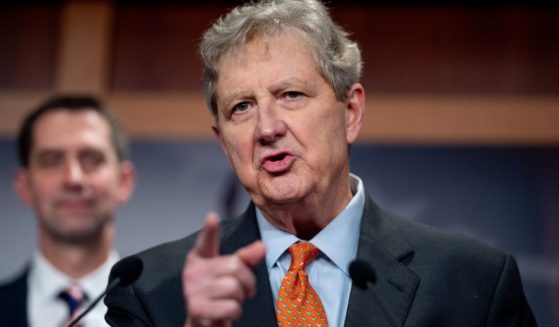Senate report: Russia social media influence efforts ongoing
WASHINGTON (AP) — Russia’s sweeping political disinformation campaign on U.S. social media was more far-reaching than originally thought, with troll farms working to discourage black voters and “blur the lines between reality and fiction” to help elect Donald Trump in 2016, according to reports released Monday by the Senate intelligence committee.
And the campaign didn’t end with Trump’s ascent to the White House. Troll farms are still working to stoke racial and political passions in America at a time of high political discord.
The two studies are the most comprehensive picture yet of the Russian interference campaigns on American social media. They add to the portrait investigators have been building since 2017 on Russia’s influence — though Trump has equivocated on whether the interference actually happened.
Facebook, Google and Twitter declined to comment on the specifics of the reports.
The reports were compiled by the cybersecurity firm New Knowledge and by the Computational Propaganda Research Project, a study by researchers at the University of Oxford and Graphika, a social media analysis firm.
The Oxford report details how Russians broke down their messages to different groups, including discouraging black voters from going to the polls and stoking anger on the right.
“These campaigns pushed a message that the best way to advance the cause of the African-American community was to boycott the election and focus on other issues instead,” the researchers wrote.
At the same time, “Messaging to conservative and right-wing voters sought to do three things: repeat patriotic and anti-immigrant slogans; elicit outrage with posts about liberal appeasement of ‘others’ at the expense of US citizens, and encourage them to vote for Trump.”
The report from New Knowledge says there are still some live accounts tied to the original Internet Research Agency, which was named in an indictment from special counsel Robert Mueller in February for an expansive social media campaign intended to influence the 2016 presidential election. Some of the accounts have a presence on smaller platforms as the major companies have tried to clean up after the Russian activity was discovered.
“With at least some of the Russian government’s goals achieved in the face of little diplomatic or other pushback, it appears likely that the United States will continue to face Russian interference for the foreseeable future,” the researchers wrote.
The New Knowledge report says that none of the social media companies turned over complete data sets to Congress and some of them “may have misrepresented or evaded” in testimony about the interference by either intentionally or unintentionally downplaying the scope of the problem.
The Senate panel has been investigating Russian interference on social media and beyond for almost two years. Intelligence committee Chairman Richard Burr said in a statement that the data shows how aggressively Russia tried to divide Americans by race, religion and ideology and erode trust in institutions.
“Most troublingly, it shows that these activities have not stopped,” said Burr, a North Carolina Republican.
One major takeaway from both studies is the breadth of Russian interference that appeared on Instagram, which is owned by Facebook and was not frequently mentioned when its parent company testified on Capitol Hill. The study says that as attention was focused on Facebook and Twitter in 2017, the Russians shifted much of their activity to Instagram.
The New Knowledge study says that there were 187 million engagements with users on Instagram, while there were 77 million on Facebook.
“Instagram was a significant front in the IRA’s influence operation, something that Facebook executives appear to have avoided mentioning in congressional testimony,” the researchers wrote. They added that “our assessment is that Instagram is likely to be a key battleground on an ongoing basis.”
The Russian activity went far beyond the three tech companies that provided information, reaching many smaller sites as well. The New Knowledge report details sophisticated attempts to infiltrate internet games, browser extensions and music apps. The Russians even used social media to encourage users of the game Pokemon Go — which was at peak popularity in the months before the 2016 presidential election — to use politically divisive usernames, for example.
The report discusses even more unconventional ways that the Russian accounts attempted to connect with Americans and recruit assets, such as merchandise with certain messages, specific follower requests, job offers and even help lines that could encourage people to unknowingly disclose sensitive information to Russia that could later be used against them.
The Russians’ attempts to influence Americans on social media first became widely public in the fall of 2017. Several months later, Mueller’s indictment laid out a vast, organized Russian effort to sway political opinion. While the social media companies had already detailed some of the efforts, the indictment tied actual people to the operation and named 13 Russians responsible.
Also notable is the study’s finding that WikiLeaks founder Julian Assange was favorably treated in posts aimed at both left-leaning and right-leaning users. The New Knowledge report says there were a number of posts expressing support for Assange and Wikileaks, including several in October 2016 just before WikiLeaks released hacked emails from Hillary Clinton’s campaign.
The Oxford study notes that peaks in Internet Research Agency advertising and organic activity — or posts, shares and comments by users — often corresponded with important dates on the U.S. calendar, crises and international events.
The researchers from Oxford said that organic postings were much more far reaching than advertisements, despite Facebook’s sole focus on ads when the company first announced it had been compromised in 2017.
Other findings in the studies:
— During the week of the presidential election, posts directed to right-leaning users aimed to generate anger and suspicion and hinted at voter fraud, while posts targeted to African-Americans largely ignored mentions of the election until the last minute.
— Establishment figures of both parties, especially Clinton, were universally panned. Even a tag targeted to feminists criticized Clinton and promoted her primary opponent, independent Bernie Sanders;
— Several posts promoted the Russian agenda in Syria and Syrian President Bashar Assad.
— IRA’s posts focused on the United States started on Twitter as far back as 2013, and eventually evolved into the multi-platform strategy.
— Russian activity on Twitter was less organized around themes like race or partisanship but more driven by local and current events and made use of occasional pop culture references.
— Facebook posts linked to the IRA “reveal a nuanced and deep knowledge of American culture, media, and influencers in each community the IRA targeted.” Certain memes appeared on pages targeted to younger people but not older people. “The IRA was fluent in American trolling culture,” the researchers say.
___
Associated Press writer Matt O’Brien contributed to this report from Providence, Rhode Island.
The Western Journal has not reviewed this Associated Press story prior to publication. Therefore, it may contain editorial bias or may in some other way not meet our normal editorial standards. It is provided to our readers as a service from The Western Journal.
Truth and Accuracy
We are committed to truth and accuracy in all of our journalism. Read our editorial standards.












